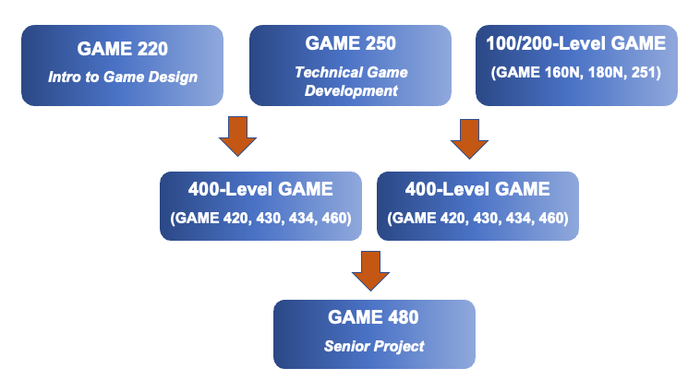The United States and global games industry continues to be one of the most diverse and healthy available for jobseekers. In the United States alone, the games industry employs more than 32,000 people across 34 states, reaching a total compensation of over three billion dollars annually. As one of a growing number of interdisciplinary programs at Penn State, students can now opt to enroll in a minor in Game Development.
The Game Development minor (GAME) is open to any Penn State Lehigh Valley student, regardless of major. As an interdisciplinary minor, Game Development complements technical majors (i.e. Computer Science, Cybersecurity, Engineering, Information Technology) as well as non-technical majors (i.e. Art, Business, Communication, and Psychology). More than just computer programming, the minor allows students to explore the artistic, social and psychological aspects of video games while providing a foundation for further study and/or employment in the gaming industry.
The Game Development minor is typically completed in 3-4 semesters, and some of the specific courses required by the minor can be used to fulfill requirements for both your current major as well as General Education requirements. Interested students should consult with their academic advisor or contact Dr. Jeffrey A. Stone ([email protected]) to identify a course sequence which works with their academic plans.
The minor consists of 18 total credits:
- GAME 220, GAME 250 (6 credits of required introductory courses)
- 3 credits of GAME Breadth courses at the 100 or 200 levels
- 6 credits of GAME Depth courses at the 400 level, and
- GAME 480 (3 credit Capstone Senior Project)
Students can take these in any year of enrollment; however, the courses are designed to be taken in ascending order, since many require a prerequisite. (Note: more detailed course descriptions can be found in the Penn State Bulletin).
Program Contact
Dr. Jeffrey A. Stone
Associate Professor, Information Sciences and Technology
Program Coordinator, IT and Cybersecurity
[email protected]
